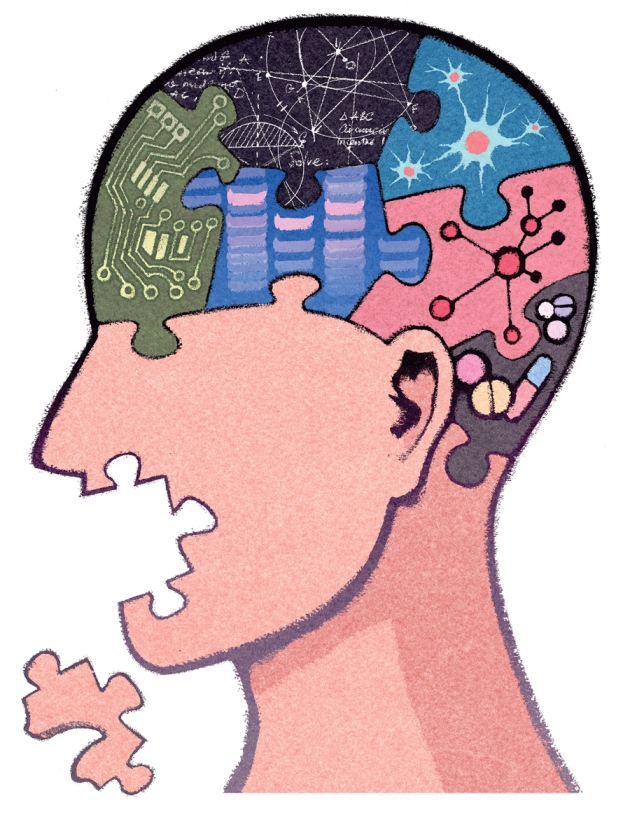Firestormm
Senior Member
- Messages
- 5,055
- Location
- Cornwall England
Yeah, yeah. Controversial. And no, it doesn't mention ME/CFS. But worth persevering with and thinking about. Though perhaps you've had enough of this already. Still...
You can read more (or not): http://www.nature.com/news/psycholo...alth-science-1.15541?WT.ec_id=NATURE-20140717
Emily A. Holmes, Michelle G. Craske & Ann M. Graybiel
16 July 2014
Psychological treatments: A call for mental-health science
Clinicians and neuroscientists must work together to understand and improve psychological treatments, urge Emily A. Holmes, Michelle G. Craske and Ann M. Graybiel.

How does one human talking to another, as occurs in psychological therapy, bring about changes in brain activity and cure or ease mental disorders? We don't really know. We need to.
Mental-health conditions, such as post-traumatic stress disorder (PTSD), obsessive–compulsive disorder (OCD), eating disorders, schizophrenia and depression, affect one in four people worldwide. Depression is the third leading contributor to the global burden of disease, according to the World Health Organization. Psychological treatments have been subjected to hundreds of randomized clinical trials and hold the strongest evidence base for addressing many such conditions. These activities, techniques or strategies target behavioural, cognitive, social, emotional or environmental factors to improve mental or physical health or related functioning. Despite the time and effort involved, they are the treatment of choice for most people (see ‘Treating trauma with talk therapy’).
For example, eating disorders were previously considered intractable within our life time. They can now be addressed with a specific form of cognitive behavioural therapy (CBT)1 that targets attitudes to body shape and disturbances in eating habits. For depression, CBT can be as effective as antidepressant medication and provide benefits that are longer lasting2. There is also evidence that interpersonal psychotherapy (IPT) is effective for treating depression...
A house divided
But evidence-based psychological treatments need improvement. Although the majority of patients benefit, only about half experience a clinically meaningful reduction in symptoms or full remission, at least for the most common conditions. For example, although response rates vary across studies, about 60% of individuals show significant improvement after CBT for OCD, but nearly 30% of those who begin therapy do not complete it3. And on average, more than 10% of those who have improved later relapse4. For some conditions, such as bipolar disorder, psychological treatments are not effective or are in their infancy.
Moreover, despite progress, we do not yet fully understand how psychological therapies work — or when they don't. Neuroscience is shedding light on how to modulate emotion and memory, habit and fear learning. But psychological understanding and treatments have, as yet, profited much too little from such developments.
It is time to use science to advance the psychological, not just the pharmaceutical, treatment of those with mental-health problems. Great strides can and must be made by focusing on concerns that are common to fields from psychology, psychiatry and pharmacology to genetics and molecular biology, neurology, neuroscience, cognitive and social sciences, computer science, and mathematics. Molecular and theoretical scientists need to engage with the challenges that face the clinical scientists who develop and deliver psychological treatments, and who evaluate their outcomes. And clinicians need to get involved in experimental science. Patients, mental-health-care providers and researchers of all stripes stand to benefit...
You can read more (or not): http://www.nature.com/news/psycholo...alth-science-1.15541?WT.ec_id=NATURE-20140717
